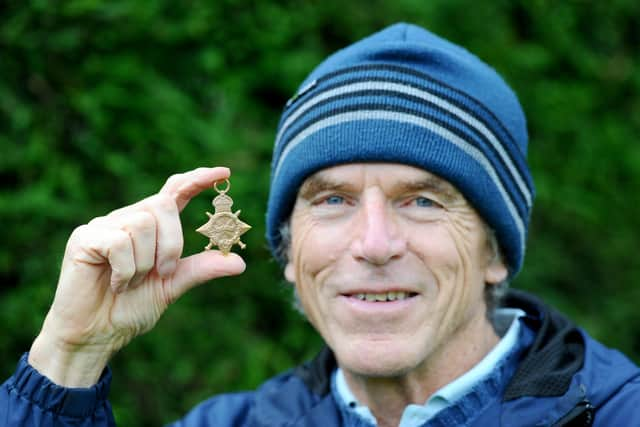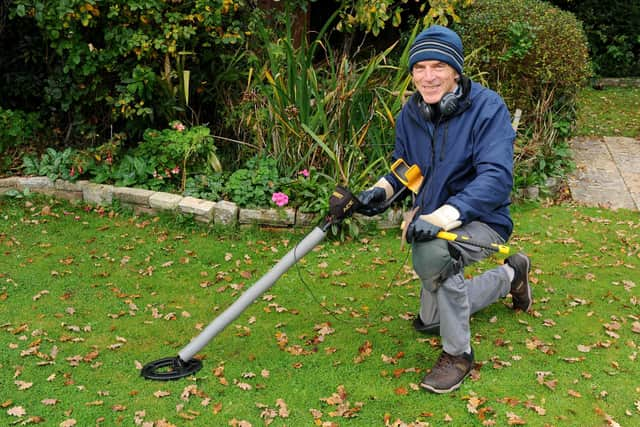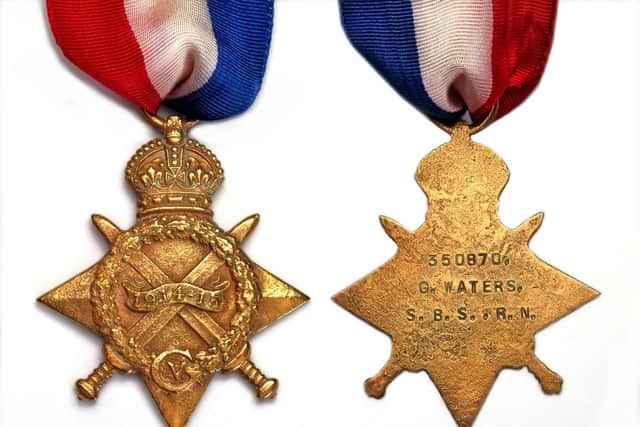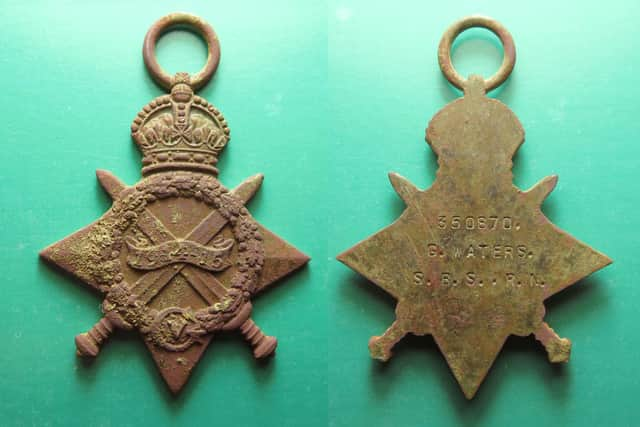Mystery surrounds rare First World War medal discovered in Waterlooville garden
and live on Freeview channel 276
Mark Williams, 71, was given the metal detector as a present after retiring in 2009 and has used it to discover artefacts including a rare Roman coin. However with Covid restrictions and Mark’s age meaning he ‘needed to shield a bit more’, the history enthusiast decided to turn his metal detecting attention closer to home – his own back garden.
Mark said: ‘I first of all did a light scan which goes down about three inches but it was when I carried out a deeper scan the detector located something around six inches down. I got out my spade and started digging.
Advertisement
Hide AdAdvertisement
Hide Ad‘I was obviously surprised to see the medal but I recognised straight away what it was. I knew it was a good find as it had the name of G Waters on the back which would hopefully allow me to find out who it belonged to.’


After contacting The News and Southsea genealogist, Clare Ash, it was then a case of finding out who the medal belonged to and how it may have ended up under the garden of Mark’s suburban property.
The medal has been identified as belonging to a Mr William George Waters who was born in Portsea in 1879 and lived at number 82 Westfield Road in Southsea.
Inscribed with SBS RN, at first Mark thought ‘he might have been part of the Special Boat Service in the Royal Navy’ but further research has revealed William worked as the chief medic in the naval Sick Berth Service.


Advertisement
Hide AdAdvertisement
Hide AdHe is believed to have joined the navy in 1899 and after the onset of the Great War William served aboard HMS Birmingham, Carlisle and Iron Duke. William was posted to the North Sea where he saw active service during the infamous Battle of Jutland which saw more than 6,000 allied servicemen perish and during which his vessel was the ‘first to sink a German submarine’.
In honour of his service William was awarded the Victory Medal and the 1914-15 Star – the one discovered in Mark’s garden. The medal was awarded to members of the British Empire who served during the conflict between 1914 and 1915.
However, mystery still remains as to how it ended up beneath Mark’s garden.


Mark said: ‘These houses were not built until the 1950s and having looked at planning records, before this period they were just fields. During the First World War some of these fields were used as tented hospitals and it could be that William was in this area at that time with his medal.
Advertisement
Hide AdAdvertisement
Hide Ad‘Having cleaned the medal up, I now hope to be able to return it to his family. It would also be brilliant to find a photograph of William to put a face to the medal.’
Further research revealed that after leaving Portsea, William moved to Alverstoke in 1901 and in 1903, at the age of 24, he married Frances Lucy Harrison.
Anyone who believes they are related to William should email [email protected]


While investigating what lay beneath his garden, Mark also discovered coins dating back to 1902 and the reign of King Edward VII. He also found uniform buttons ‘indicating that the area was once used by the military’.
A message from the Editor, Mark Waldron
The News is more reliant than ever on you taking out a digital subscription to support our journalism.
You can subscribe here for unlimited access to Portsmouth news online - as well as our new Puzzles section.
Comment Guidelines
National World encourages reader discussion on our stories. User feedback, insights and back-and-forth exchanges add a rich layer of context to reporting. Please review our Community Guidelines before commenting.